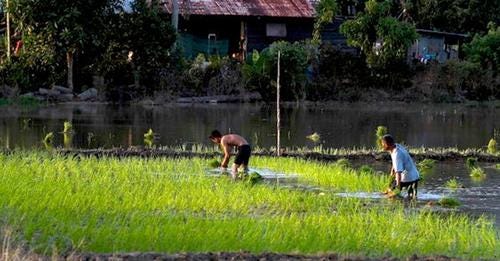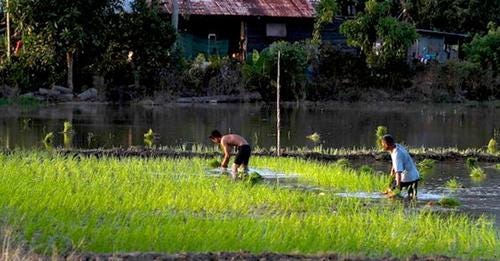Many cannot understand why a convicted and jailed felon, who stole public money is still so popular with the electorate. Najib Razak now incarcerated in Kajang Prison is still very much part of the coming election, through the massive social media presence he has.
Whether Najib plays a major role in the coming general election, or become just a marginal sideshow, points out an issue, that many leaning towards the opposition are not seeing.
Malay politics will be the cornerstone of the GE15 result. Around 40 percent of the 222 seats in the Dewan Rakyat can be considered being in the Malay heartland. Fifty-one percent of Malaysia’s population are classified as Malays.
The winner of the coming election will be the party or party grouping that best understands the Malay heartland. This is primarily UMNO’s stronghold.
The logic of corruption
Many see corruption as a serious crime that is morally repugnant. They cannot understand why corrupt politicians can be accepted and even admired within the Malay heartlands.
The view of corruption in the Malay heartlands is very different. A political leader helping a friend in trouble with a government contract is considered a noble act, not an act of corruption. One UMNO MP is regularly seen by many within his electorate as a ‘Robinhood’. He reportedly travels around the state handing out gifts and money. He supports orphanages, visits hospitals, and donates to mosques.
The 1MDB financial scandal is extremely complex and understood by very few. Najib’s jailing is seen by many as a selective and political prosecution, contrived by Mahathir Mohamed, who is perceived as ‘unjustly’ jailing Anwar Ibrahim. Thus, the issue of justice for politicians is seen as political rather than judicial. Thus, Najib is seen as a political prisoner, and not a felon.
How many really think along these lines will be partly understood from the election results. Overcoming the adat (custom), that orang pimpiman (leaders) can do no wrong, and should be respected, will not be easy to change. Malaysia has the widest power-distance relationships in the world.
Corruption is an issue that is regularly covered up in Malaysia, especially within government institutions. Those who expose this issue publicly are seen as rebelling against Malay cultural norms.
This is why corruption will not be a major issue within the Malay heartlands. Pushing these issues too hard may even be counter-productive.
Malay social identity
There are three major aspects of Malay social identity are Raja (Monarchy), Agama (Religion), and Bahasa (Language).
The dominating aspect of Malay social identity is Islam. Islam defines how a Malay sees the world. Many believ being a Muslim is more important than being a Malaysian. Anything outside this view can be seen as threatening.
Secular politics doesn’t work in the Malay heartlands as it conflicts with the views of Malay social identity. Any arguments that Malays will be better off under a secular government will be viewed with suspicion.
To win the Malay heartlands, one has to be Islamic. This is the prime battlefield for the hearts and minds in the Malay heartlands. Mahathir Mohamed has played this card for decades.
The DAP has been has long been portrayed as the bogeyman, and an enemy of an Islamic way of life. This has been a winning political narrative.
UMNO has branded itself as the party that looked after the interests of the Malays. UMNO gained independence for Malays, developed the kampongs, provided schooling, and defends Islam. UMNO uses the narrative of gratitude, an important trait in Malay culture.
What do the voters of the Malay heartlands really want?
Malay culture and perspectives have been socially engineered over decades to create a ‘need of protection’. UMNO has become the protector against the ‘evil forces’ aimed at changing the Malay way of life.
UMNO plays the role of provider. Infrastructure, education, health, and even Haj. Local MPs are facilitators and problem solvers for their constituents.
Some can see through these narratives, and this is why Party Keadilan Rakyat (PKR) is able to develop some degree of support. This is a growing trend, but ever so slowly. However, the youth are not jumping on board, as many had assumed, because they see the world through Malay social identity.
The Malay heartlands are far from homogenous. UMNO’s arch nemesis PAS has broken into UMNO’s strongholds, where there are now UMNO and PAS kampongs existing side by side. This even filters down to mosques, where some mosques become UMNO mosques and others have become PAS mosques. Divisions in support for UMNO and PAS have split apart families.
The arrival of Bersatu to the Malay heartlands has also split support. Bersatu has soaked up those who were for many reasons dissatisfied with UMNO. Bersatu has become a flag of convenience, rather than a sign of any new ideological direction within the Malay heartlands. Many pundits believe Bersatu may be wiped out this election, with support reconsolidating behind UMNO, once again.
Can the opposition penetrate the Malay heartlands?
This is the question may are considering right now. There are some who believe corruption issues will sway voters in this election. However, based on the concepts within Malay social identity, its difficult to see how the voters within the Malay heartlands will be persuaded by exposes of corruption and wrong doing by incumbent politicians.
If there is going to be any change, it must be generational with the youth. However, this will not be easy, as the younger generation has been educated within a system reinforcing Malay social identity. Many are even more religious than their parents and grandparents today.
The opposition must learn that even Bersatu, a Malay-centric party, couldn’t penetrate deeply into the Malay heartlands. Last general election it very much relied on the help of Pakatan. A new generation of Pakatan politicians need to engage the youth within the paradigm of Malay social identity.
This is not going to happen in the coming general election. It will take a generation. However, the aspiration for secular politics within the Malay heartlands is a tall order, unless some charismatic visionary politician arrives on the scene.
This is an issue for the new generation of Pakatan politicians.
Originally published in FMT 15th October 2022
Subscribe Below:





true but sad and depressing........
If you have seen Najib work a Malay crowd, you will know why he's popular... Any thoughts on what the "Malay heartland" actually thinks of Rosmah?
e.g. https://www.straitstimes.com/asia/se-asia/little-sympathy-for-rosmah-after-luxurious-lifestyle